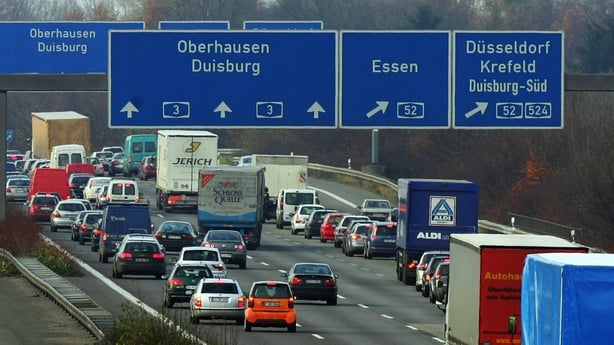Morale among German analysts and investors plummeted in October to its lowest level in a year as the diesel emissions scandal at carmaker Volkswagen and weakness in emerging markets took their toll.
This is according to a survey published by the ZEW think tank today.
The survey gave the first insight into how the biggest business-related scandal in Volkswagen's 78-year history is hitting sentiment in Europe's largest economy at a time when a series of data releases have shown German industrial orders, output and exports tumbling.
Mannheim-based ZEW said economic sentiment, as measured by its monthly survey, fell to 1.9 points in October from 12.1 in September.
That was the weakest reading since October 2014 and far below a consensus forecast for a reading of 6.
"The emissions scandal at Volkswagen and sluggish growth in emerging markets are dampening the economic outlook for Germany," ZEW President Clemens Fuest said in a statement.
But he added that a positive domestic environment and recovering euro zone made it unlikely that the German economy would slip into recession.
Volkswagen is Europe's largest car maker and is one of Germany's largest employers, with more than 270,000 jobs in its home country and even more working for suppliers.
The car industry accounted for 17.9% of Germany's €1.1 trillion in exported goods last year, according to Deutsche Bank, and has enjoyed above-average export growth since 2009.
Thomas Gitzel, economist at VP Bank, blamed the Volkswagen scandal for the sharp drop in the ZEW index.
"The VW emissions scandal probably depressed the mood among financial market analysts and order intake has also been disappointing recently. That will take the wind out of the optimists' sails," he said.
But a record-low jobless rate, decent wage rises and low interest rates will keep the German economy on track, he said.
The influx of refugees "is like a mini economic stimulus programme due to higher government spending," he added.

Germany was hit by a raft of disappointing data for the month of August last week, with exports plunging by the largest amount since the height of the global financial crisis, industrial output posting its steepest drop in a year and orders also sliding.
A senior official told Reuters that the German government was getting ready to trim its estimate for growth this year to 1.7%.
ZEW's index tracking current conditions dropped to 55.2 points from 67.5 points in September, undershooting expectations for a drop to 64.7.
The survey, in which 217 analysts and institutional investors took part, was conducted between September 28 and October 12.
German inflation back to zero in September
Consumer prices in Germany, Europe's biggest economy, did not rise in September, data showed today, raising pressure on the ECB to prevent the wider euro area from slipping into a dangerous cycle of falling prices.
Germany's national inflation yardstick, the consumer price index, showed zero change this month, after rising by a meagre 0.2% the previous month, the federal statistics office Destatis said.
The main factor behind the slowdown was a renewed decline in energy prices, the statisticians explained.
Using the Harmonised Index of Consumer Prices (HICP) - the barometer used by the European Central Bank - the inflation rate in Germany actually declined by 0.2% year-on-year in September, the statisticians said.
The ECB regards annual inflation rates of close to but just under 2% as conducive to healthy economic growth and has recently launched a raft of measures to kickstart prices and push area-wide inflation back up nearer that level.
A controversial programme of sovereign bond purchases, known as QE or quantitative easing, was rolled out in March and initially appeared to work.
But the economic slowdown in China and depressed oil prices have pushed inflation expectations back down again.
Today's final data confirmed a preliminary flash estimate published at the end of last month.
Analysts said the data will raise the heat on the ECB to step up its anti-deflation measures.

